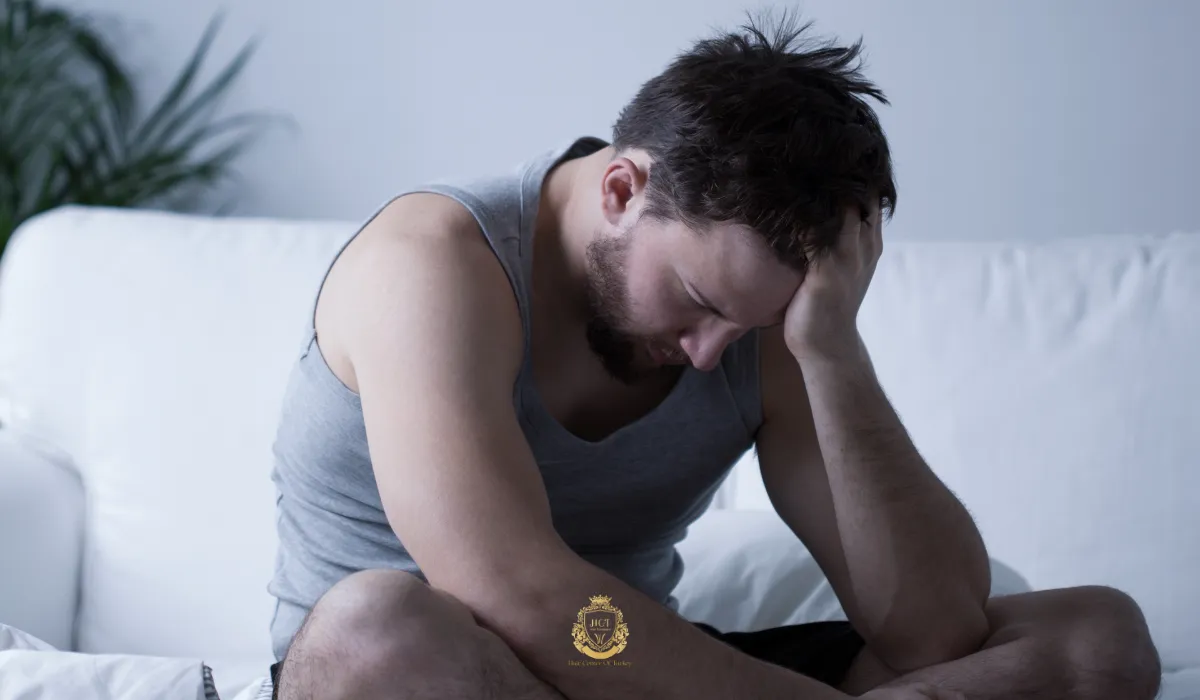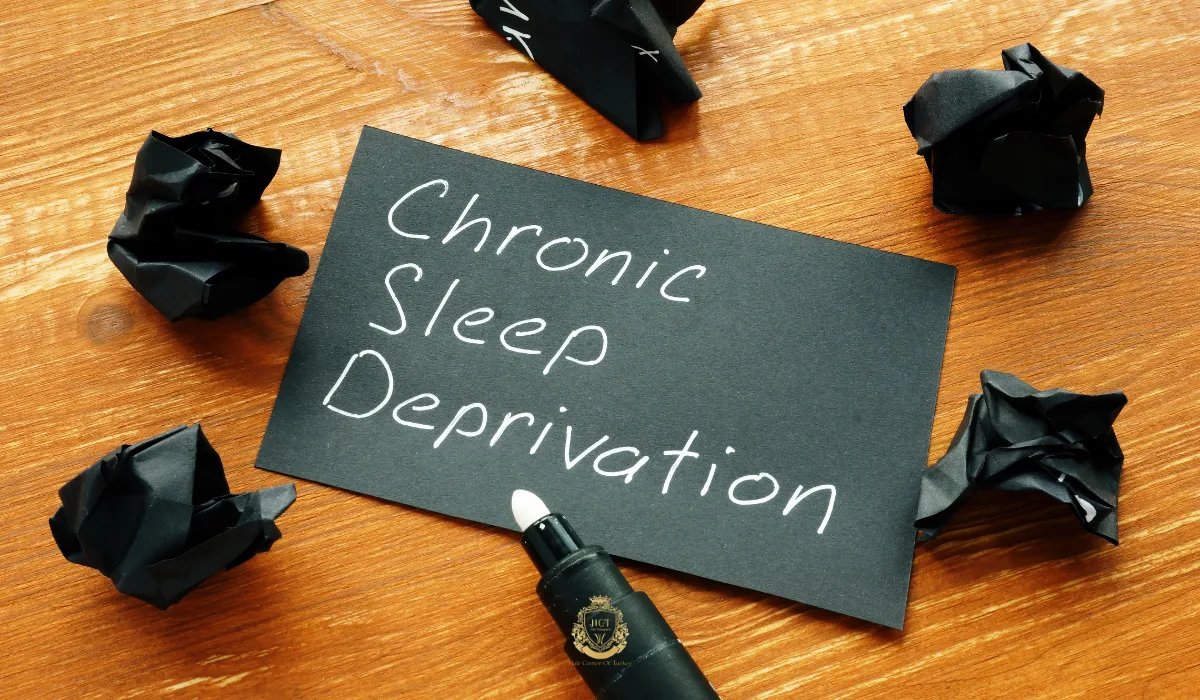
Can Lack Of Sleep Cause Hair Loss?
Yes, poor sleep can contribute to hair shedding in some people. Sleep loss may increase stress hormones, worsen scalp inflammation, and push more hairs into the resting (telogen) phase, which can show up as diffuse thinning. The good news is that sleep-related shedding is often reversible once sleep, stress, and overall health improve.
The Connection Between Sleep And Hair Health
Sleep supports hormone balance, immune function, tissue repair, and protein synthesis. Those systems also help keep hair follicles in the growth phase for longer. When sleep is consistently short or poor quality, the body prioritises essential functions, and hair can become a lower priority.

How Lack Of Sleep Can Affect The Hair Growth Cycle
Hair grows in a repeating cycle with three main stages: anagen (growth), catagen (transition), and telogen (resting). If a higher number of follicles shift into telogen at the same time, shedding increases. This pattern is often called telogen effluvium and can be triggered by physical or emotional stressors, including prolonged sleep deprivation.

Ways Sleep Deprivation May Trigger Shedding
1) Higher Stress Hormones
Poor sleep is linked with higher cortisol levels. Over time, elevated cortisol may affect blood flow, increase inflammation, and disturb hormones that influence the hair cycle. This does not mean everyone who sleeps badly will lose hair, but it can be a contributing factor if shedding is already borderline.
2) Increased Inflammation And Scalp Sensitivity
Sleep loss can make inflammatory skin conditions harder to control. If you have dandruff, seborrhoeic dermatitis, eczema, or psoriasis, flare-ups may increase itch and scratching. Repeated rubbing and scratching can weaken hair shafts and worsen breakage.
3) Lifestyle Knock-On Effects
Short sleep often comes with changes that also affect hair, such as higher anxiety, irregular meals, and lower protein intake. People may rely more on caffeine, smoke more, or drink more alcohol when tired. These factors can reduce recovery and may make shedding more noticeable.

What Sleep-Related Hair Loss Typically Looks Like
When sleep is a factor, hair loss is usually diffuse rather than patchy. You may notice more hair in the shower, on your pillow, or when brushing, with a general reduction in volume. The hairline usually stays the same, although it can look thinner if overall density drops.
How Long Does It Take For Hair To Recover?
Hair responds slowly because follicles need time to re-enter the growth phase. If shedding is driven by telogen effluvium, improvement often starts after the trigger is addressed, but visible regrowth can take several months. If there are other causes at the same time—such as iron deficiency or androgenetic alopecia—progress may be slower and needs targeted care.
Practical Sleep Tips That Also Support Hair Health
Aim for a regular sleep and wake time, even on weekends. Limit bright screens and heavy meals close to bedtime, and keep the room cool, dark, and quiet. If you wake often, consider reducing late-day caffeine and alcohol, and build a wind-down routine like light reading or breathing exercises.
Nutrition Basics To Pair With Better Sleep
Hair is made primarily of protein, so consistent protein intake matters. Iron, zinc, vitamin D, and B vitamins are also commonly linked with hair shedding when levels are low. If your diet is restricted, or you have heavy periods, digestive symptoms, or recent weight loss, it’s worth discussing blood tests with a clinician.
When To See A Doctor Or Hair Specialist
Seek medical advice if shedding is sudden, severe, or lasts longer than three months. You should also get checked if you have bald patches, scalp pain, scaling, redness, or signs of hormone imbalance such as acne or irregular periods. A clinician can help rule out common causes like thyroid disease, anaemia, nutrient deficiencies, autoimmune conditions, and medication side effects.
F.A.Q.
Is hair loss from lack of sleep permanent?
In many cases, no. If sleep deprivation is a key trigger, shedding often improves once sleep and stress are addressed, though regrowth takes time.
How much sleep supports healthy hair?
Most adults do best with 7–9 hours per night. The goal is consistent, good-quality sleep rather than a perfect number on any one night.




